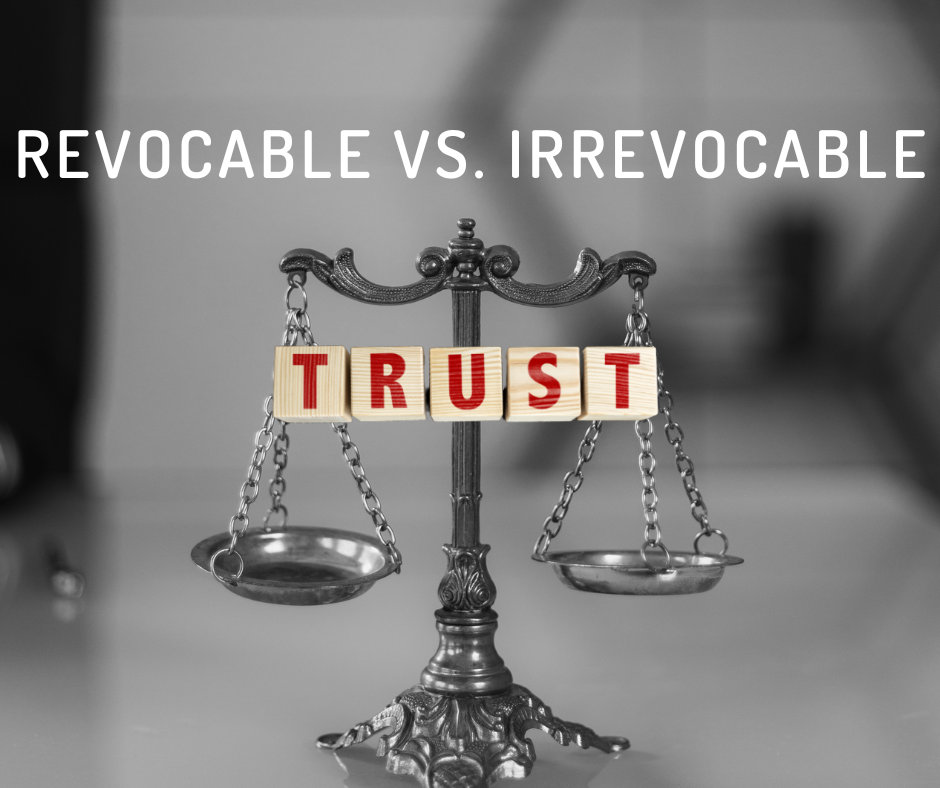In estate planning, trusts are crucial for protecting assets and ensuring a smooth transition of wealth. There are two main types of trusts – revocable and irrevocable trusts, each with specific purposes and benefits. It’s really important to know the differences between these two kinds of trusts if you want to set up a strong plan for your financial future. In this blog post, we’ll break down the flexibility and control, explaining how they’re different, and helping you make smart choices.
Revocable Trusts: Flexibility and Control
A revocable trust, also known as a living trust, provides the grantor with flexibility and control over their assets during their lifetime. The key characteristic of a revocable trust is that the grantor retains the power to make adjustments, modify, or change the trust at any time. This feature makes it an attractive option for individuals who want to maintain control over their assets while enjoying the benefits of a trust.
One of the primary advantages of a revocable trust is its adaptability to changes in circumstances. The grantor can modify the trust to accommodate life events such as marriage, divorce, the birth of children, or changes in financial status. Additionally, since the trust is revocable, the assets held within it are still considered part of the grantor’s estate for tax purposes.
However, the flexibility of a revocable trust comes with certain disadvantages. Because the assets remain within the grantor’s estate, they are subject to estate taxes upon the grantor’s passing. Moreover, creditors can potentially make claims against the trust, because the assets are still considered part of the grantor’s personal wealth.
Irrevocable Trusts: Asset Protection and Tax Efficiency
In contrast, an irrevocable trust offers greater asset protection and tax efficiency but comes with the trade-off of reduced control for the grantor. Once established, the terms of an irrevocable trust generally cannot be changed without the consent of all named beneficiaries. Even though it’s not very flexible, it has big advantages, making irrevocable trusts a preferred choice for long-term estate planning.
Asset protection is a key advantage of irrevocable trusts. Since the assets are no longer considered part of the grantor’s estate, they are shielded from creditors and are not subject to estate taxes upon the grantor’s death. This makes irrevocable trusts an effective tool for preserving wealth for future generations.
Additionally, irrevocable trusts often come with tax advantages. Certain types of irrevocable trusts, such as irrevocable life insurance trusts (ILITs) and charitable remainder trusts (CRTs), offer strategies to minimize estate taxes and provide for beneficiaries in a tax-efficient manner.
Choosing between a revocable and irrevocable trust depends on individual financial goals, preferences, and circumstances. A revocable trust provides flexibility and control during the grantor’s lifetime but may expose assets to estate taxes and creditor claims. On the other hand, an irrevocable trust offers enhanced asset protection and tax efficiency but requires giving up control over the trust’s terms.
In conclusion, both revocable and irrevocable trusts serve essential roles in estate planning. Consulting with a qualified estate planning attorney is crucial to determine the most suitable trust structure based on individual needs and objectives. At O’Brien Estate Law, we focus on protecting your family’s future. We create trusts and estate plans that secure your assets and make sure your wishes are followed.
Remember, this information serves as educational and informational content only and is not a substitute for legal advice. Before making any changes to your estate plan, consult with a lawyer you trust to ensure your decisions align with your individual needs and circumstances. Click the link below to set up a meeting with O’Brien Estate Law, LLC, where we can discuss your specific situation and guide you towards a comprehensive estate plan.

